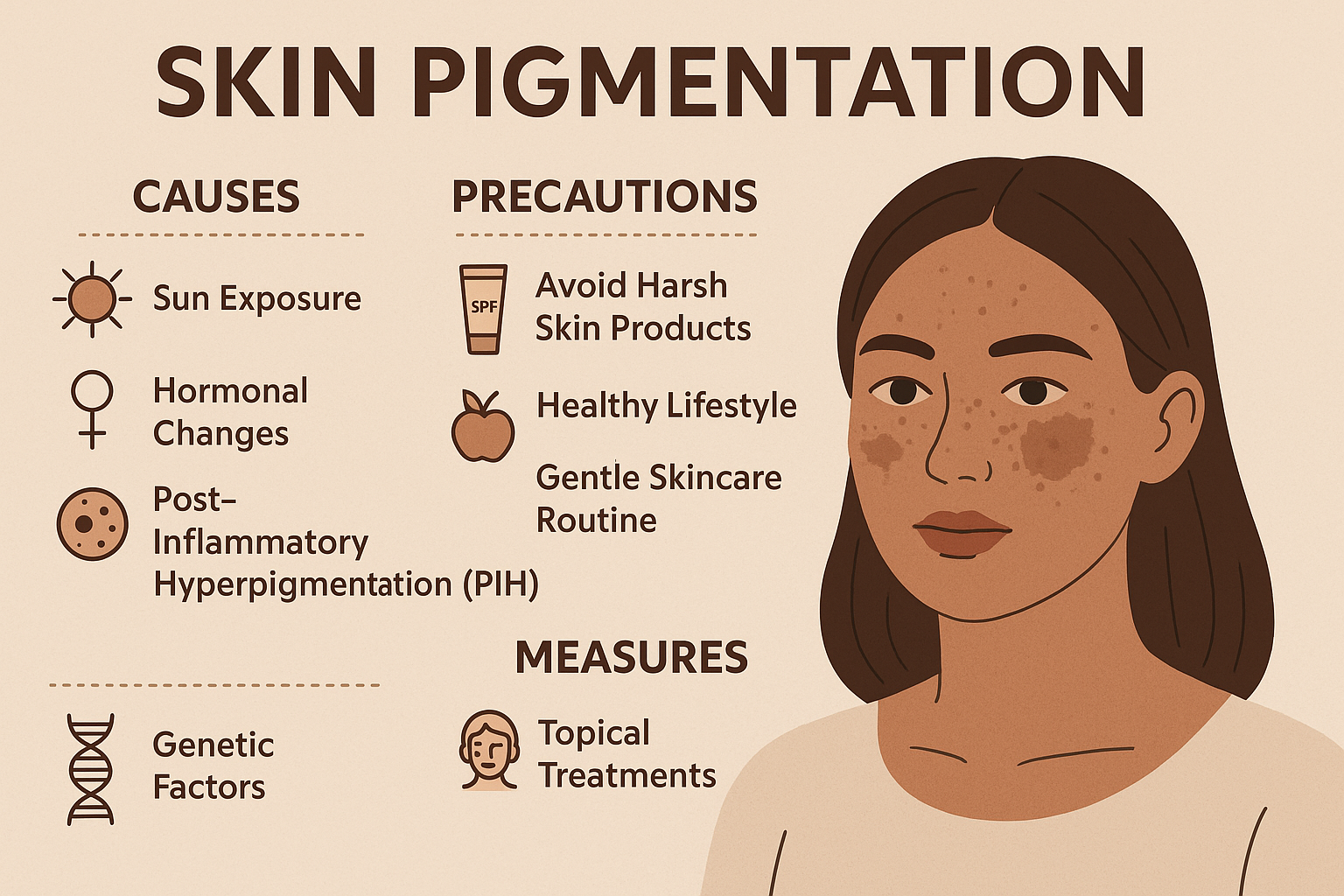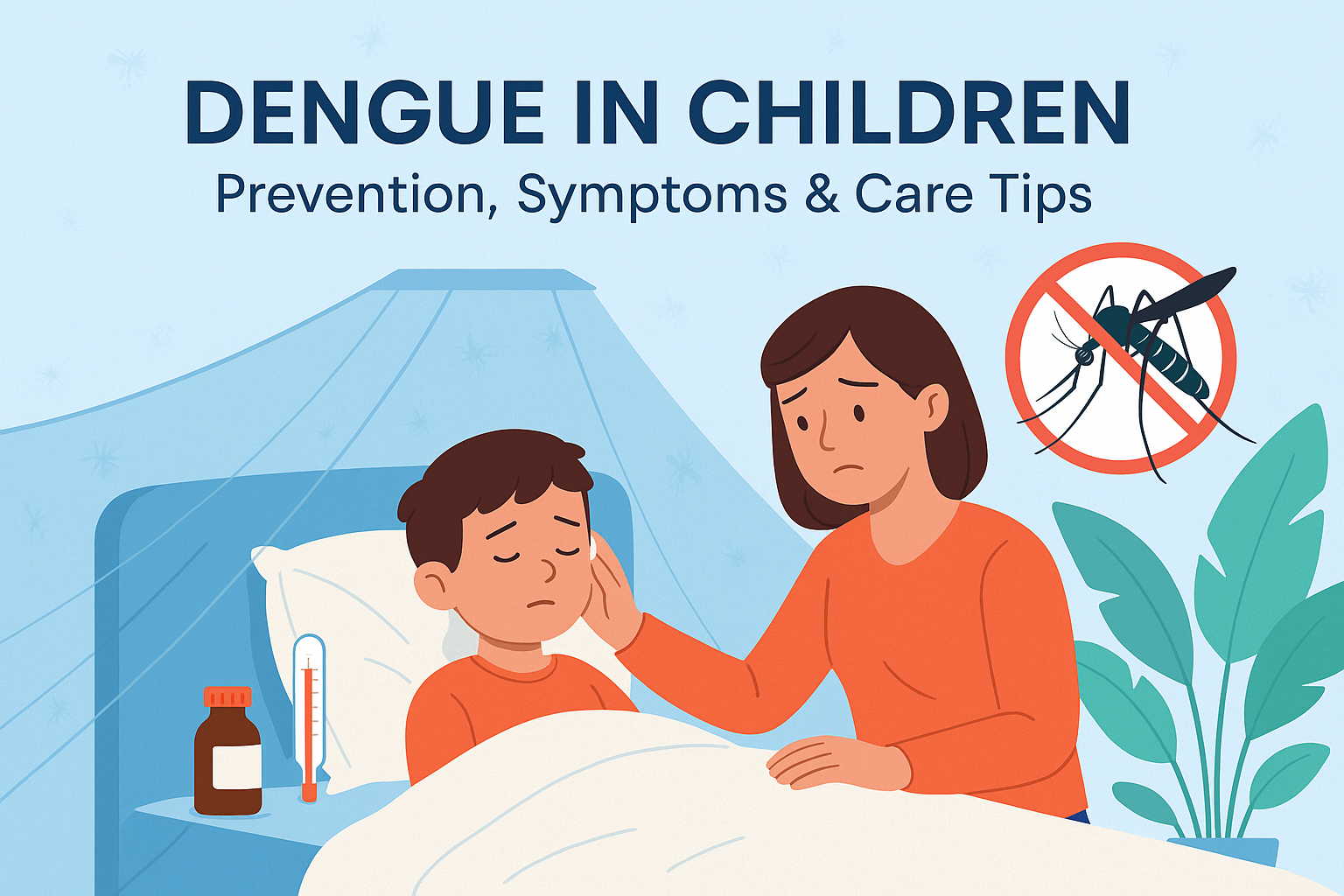Skin pigmentation refers to the coloring of the skin due to the presence of melanin, a natural pigment produced by cells called melanocytes. While melanin plays a crucial role in protecting the skin from sun damage, an imbalance in its production can lead to hyperpigmentation or hypopigmentation, resulting in uneven skin tone. This article explores the common causes of pigmentation issues, preventive steps, and effective treatment measures to maintain healthy, radiant skin.
Common Causes of Skin Pigmentation
- Sun Exposure: Prolonged exposure to ultraviolet (UV) rays stimulates excess melanin production, leading to sunspots, age spots, or freckles.
- Hormonal Changes: Conditions like melasma often occur during pregnancy or due to hormonal therapy and oral contraceptives.
- Post-Inflammatory Hyperpigmentation (PIH): This occurs after skin injuries, acne, or inflammation, leaving dark patches behind.
- Genetic Factors: A predisposition to pigmentation disorders can run in families.
- Medical Conditions and Medications: Disorders like Addison’s disease or the use of certain drugs can disrupt melanin production.
Precautions to Prevent Pigmentation
- Sun Protection: Always wear broad-spectrum sunscreen (SPF 30 or higher), even on cloudy days. Use hats and sunglasses to shield your face.
- Avoid Harsh Skin Products: Chemical-based products and harsh exfoliants can irritate the skin and worsen pigmentation.
- Healthy Lifestyle: A diet rich in antioxidants, staying hydrated, and getting adequate sleep helps support skin health.
- Gentle Skincare Routine: Use mild cleansers and moisturizers to maintain the skin barrier and prevent inflammation.
Measures to Treat and Manage Pigmentation
- Topical Treatments: Ingredients like vitamin C, niacinamide, kojic acid, and retinoids help lighten dark spots and even out skin tone.
- Chemical Peels: These remove the top layer of skin, promoting new skin growth and reducing pigmentation.
- Laser Therapy: Advanced laser treatments target deeper pigmentation for long-lasting results.
- Dermatologist Consultation: Persistent or severe pigmentation should be assessed by a skincare professional for personalized treatment plans.
In conclusion, while pigmentation is a common skin concern, understanding its causes and adopting preventive and corrective measures can significantly improve skin clarity and tone. Consistent skincare, sun protection, and professional guidance are key to achieving and maintaining a glowing complexion.
For more information subscribe to our Youtube channel






